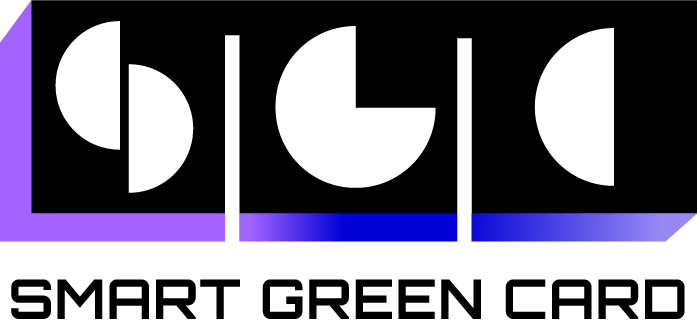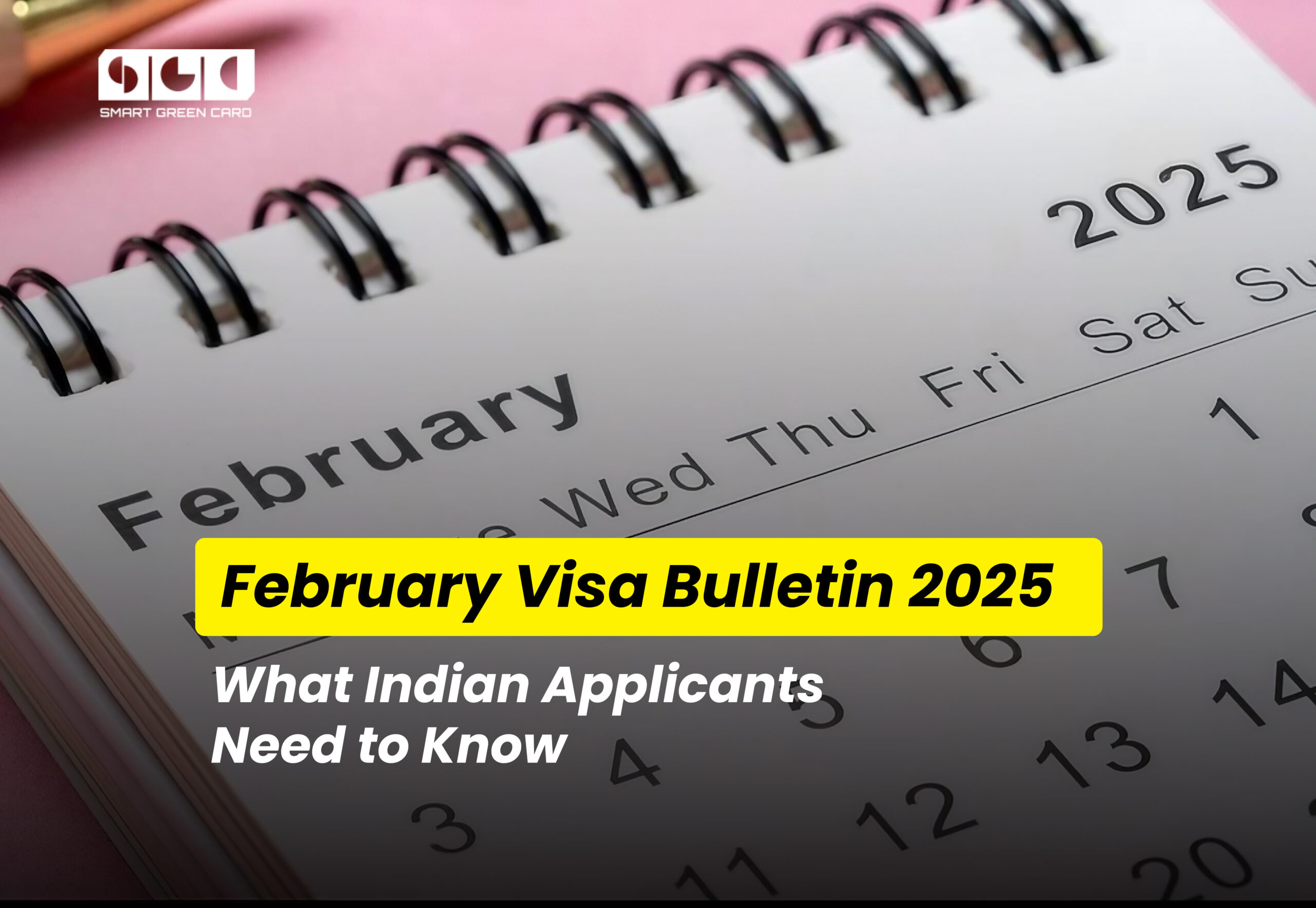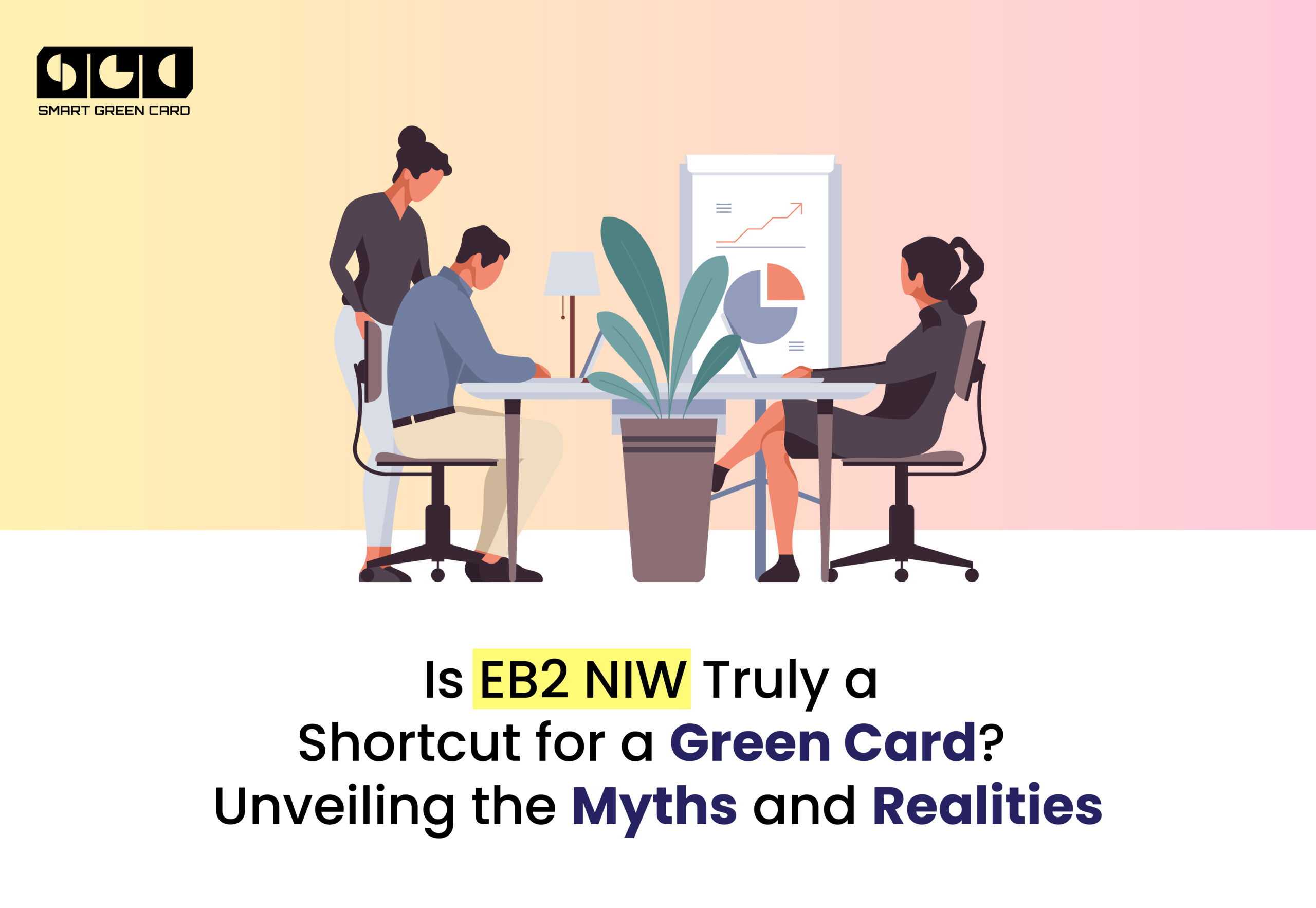H1B Modernization Rule: What It Means for U.S. Employers and Workers
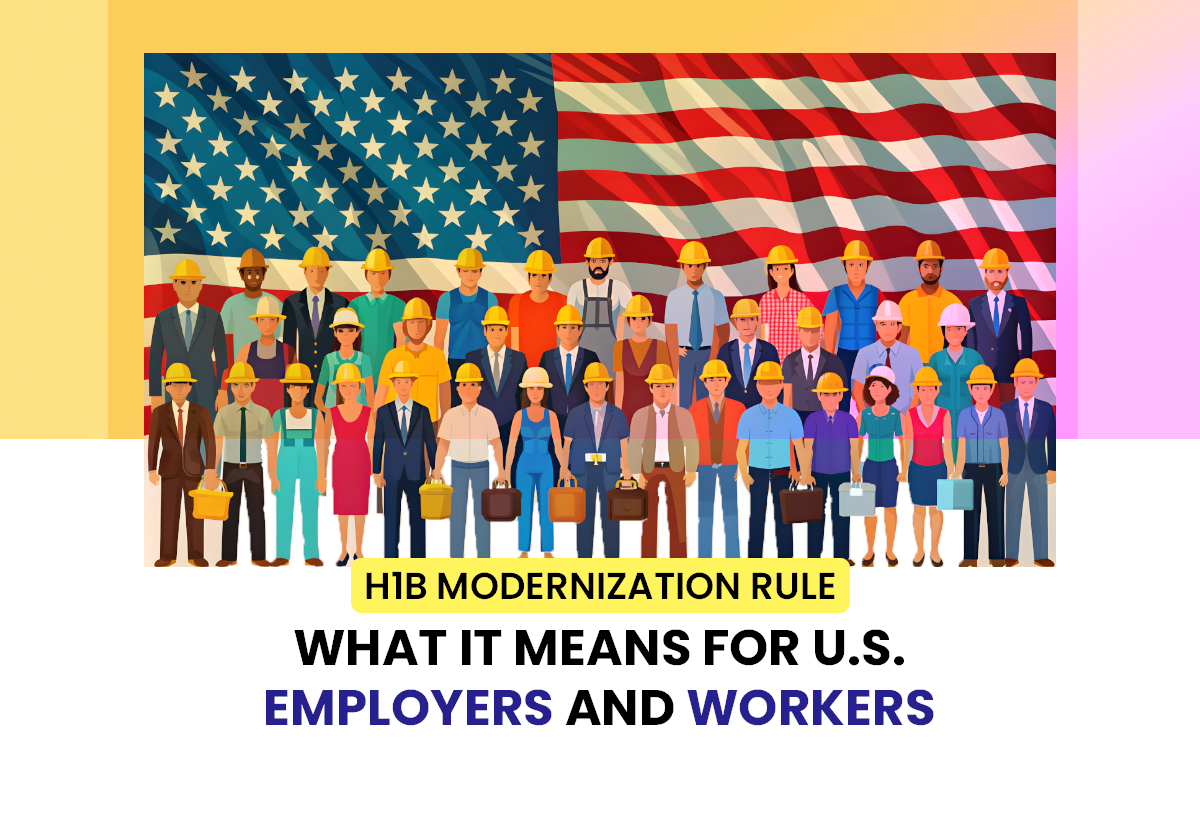
The H-1B Modernization Rule introduces significant updates to the H1B visa program offering enhanced flexibility, efficiency, and integrity for both employers and employees.
Whether you’re an F-1 student transitioning to an H-1B, a seasoned professional seeking an extension, or even an entrepreneur building your dream venture, these changes aim to make the journey smoother and more transparent. This update goes beyond process improvements, aiming to enhance opportunities for global talent in the U.S. workforce. In this blog, we cover the key updates in the H-1B Modernization Rule and break them down in simpler terms.
Key Changes of H-1B Modernization Rule
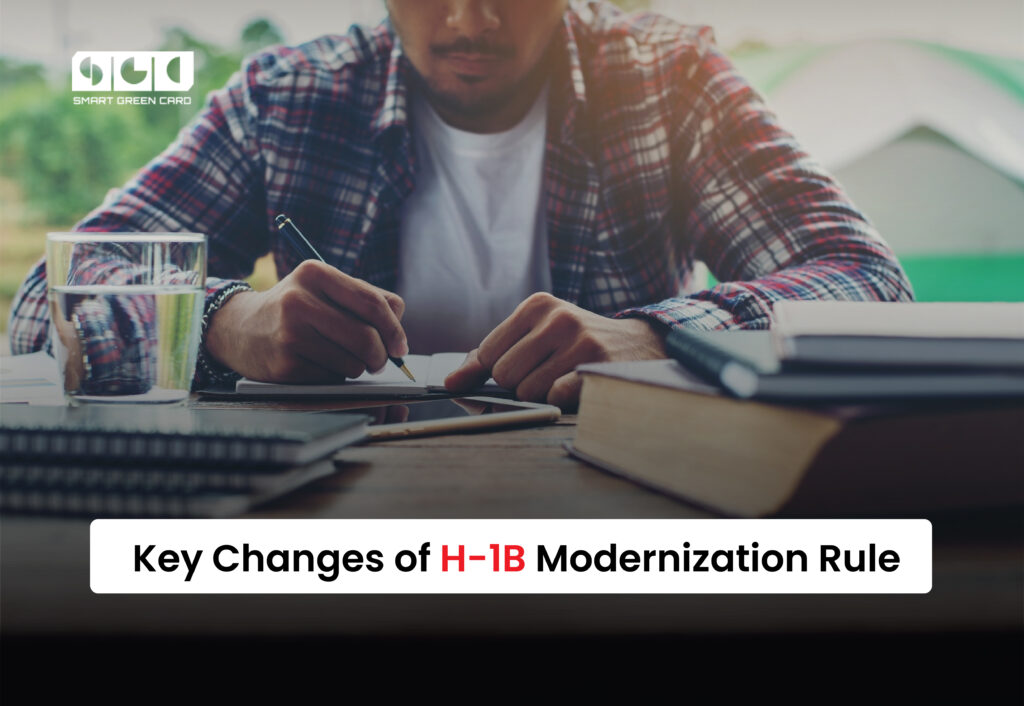
1. A Fresh Take on Specialty Occupations
Imagine you’re a skilled professional—a data scientist, engineer, or marketing analyst—wondering if your qualifications align with an H-1B role. The H-1B program has traditionally required your job to need a bachelor’s degree in a specific field, but that wasn’t always straightforward.
The new rule modernizes this definition to work in your favor. Now, a job doesn’t have to “always” require a degree—it’s enough for it to “normally” need one. Plus, degrees from related fields are now accepted, as long as there’s a clear connection to the role. This flexibility expands your opportunities, making it easier to qualify for roles that truly match your skills and expertise.
2. F-1 Students Get a Lifeline
For F-1 students transitioning to an H-1B visa, the process often felt uncertain, with risks of status lapses. The new H-1B Modernization Rule fixes this by ensuring smoother transitions and stronger protections, letting you focus on your career without the stress of legal disruptions.
The H1B Modernization Rule changes this. Students can now enjoy an extended cap-gap protection period, giving them up to six extra months of status and work authorization while their H1B petition is being processed. This update brings peace of mind to students and their employers alike.
3. Fair Play for Business Owners
The final rule confirms that business owners can petition for themselves for H-1B status if they hold a controlling interest—defined as more than 50% ownership or majority voting rights—in the petitioning entity. While the initial approval and first extension are limited to 18 months, this marks a significant step in supporting entrepreneurial talent and innovation.
4. Strengthened Integrity and Oversight
The H1B program has faced criticism in the past for loopholes and abuses. This rule addresses those concerns head-on. Employers must now prove they have a bona fide position ready for the worker from day one. USCIS will also conduct more strong site inspections to ensure compliance.
For businesses that follow the rules, this is good news. Stronger oversight means a more level playing field.
5. Easier H-1B Extensions
Under the old rules, H-1B extension requests often faced delays because officers didn’t consistently defer to prior approvals. The previous prior deference policy allowed USCIS to rely on earlier approvals of Form I-129 petitions if the parties and circumstances hadn’t changed, except in cases involving material changes, errors, or adverse information.
The new rule requires USCIS officers to defer to prior approvals, making it easier for extensions to be approved without extra scrutiny. This change is expected to reduce Requests for Evidence (RFEs) and denials, creating a smoother process for H-1B holders.
6. Expanding Cap-Exempt
The H-1B cap-exempt category has been expanded to include nonprofits whose “fundamental activity” is research, as opposed to just those primarily engaged in research. Additionally, the final rule expands eligibility for cap-exempt employment for a beneficiary not directly employed by the qualifying organization if they spend at least half of their time supporting its purpose, including hybrid or fully remote work arrangements. This opens up more opportunities for workers to avoid the H-1B lottery and work with research-based nonprofits.
What Employers Need to Do?
Starting January 17, 2025, a new Form I-129 will be required for all H1B petitions. Unlike before, there won’t be a grace period for using the old form, so employers need to be ready.
Why the H-1B Modernization Rule Matters
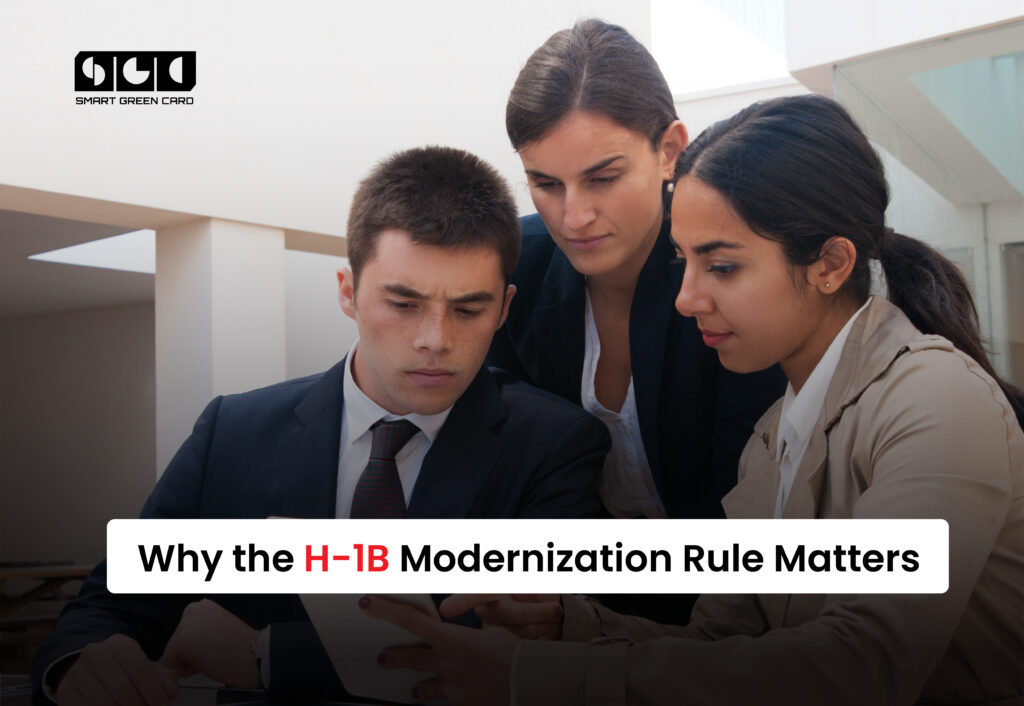
At its core, the H1B Modernization Rule is about adapting to the times. It balances flexibility for employers with stronger protections for workers. It acknowledges the dynamic nature of today’s job market while ensuring the program’s integrity remains intact.
This is an opportunity for businesses to attract and retain the best talent from around the world without unnecessary hurdles. For workers, it offers clarity, fairness, and a more straightforward path to contributing their skills to the U.S. economy.
Conclusion
The H1B Modernization Rule isn’t just a set of policy tweaks—it’s a signal that the system is evolving to meet modern needs. Whether you’re an employer looking to hire or a worker dreaming of new opportunities, these changes are designed to make the journey a little easier.
Exploring U.S. immigration can be challenging, especially with competitive options like the H-1B. For F-1 students, exploring alternatives such as the O-1A visa, which offers temporary work authorization, and the EB1A visa, which provides a faster path to permanent residency, can be valuable. At Smart Green Card VIP, we have helped over 100 professionals build strong profiles for the EB1A, O-1A, and EB2-NIW visas and secure approvals. Discover our Smart Green Card VIP plan for expert support tailored specifically to your journey.
Share this :
- SGC
- No Comments
Latest blog & Newsletters
H1B Modernization Rule: What It Means for U.S. Employers and Workers
H1B Modernization Rule: What It Means for U.S. Employers and Workers The H-1B...
February Visa Bulletin 2025: What Indian Applicants Need to Know
February Visa Bulletin 2025: What Indian Applicants Need to Know The February Visa...
Is EB2 NIW Truly a Shortcut for a Green Card? Unveiling the Myths and Realities
Is EB2 NIW Truly a Shortcut for a Green Card? Unveiling the Myths...


